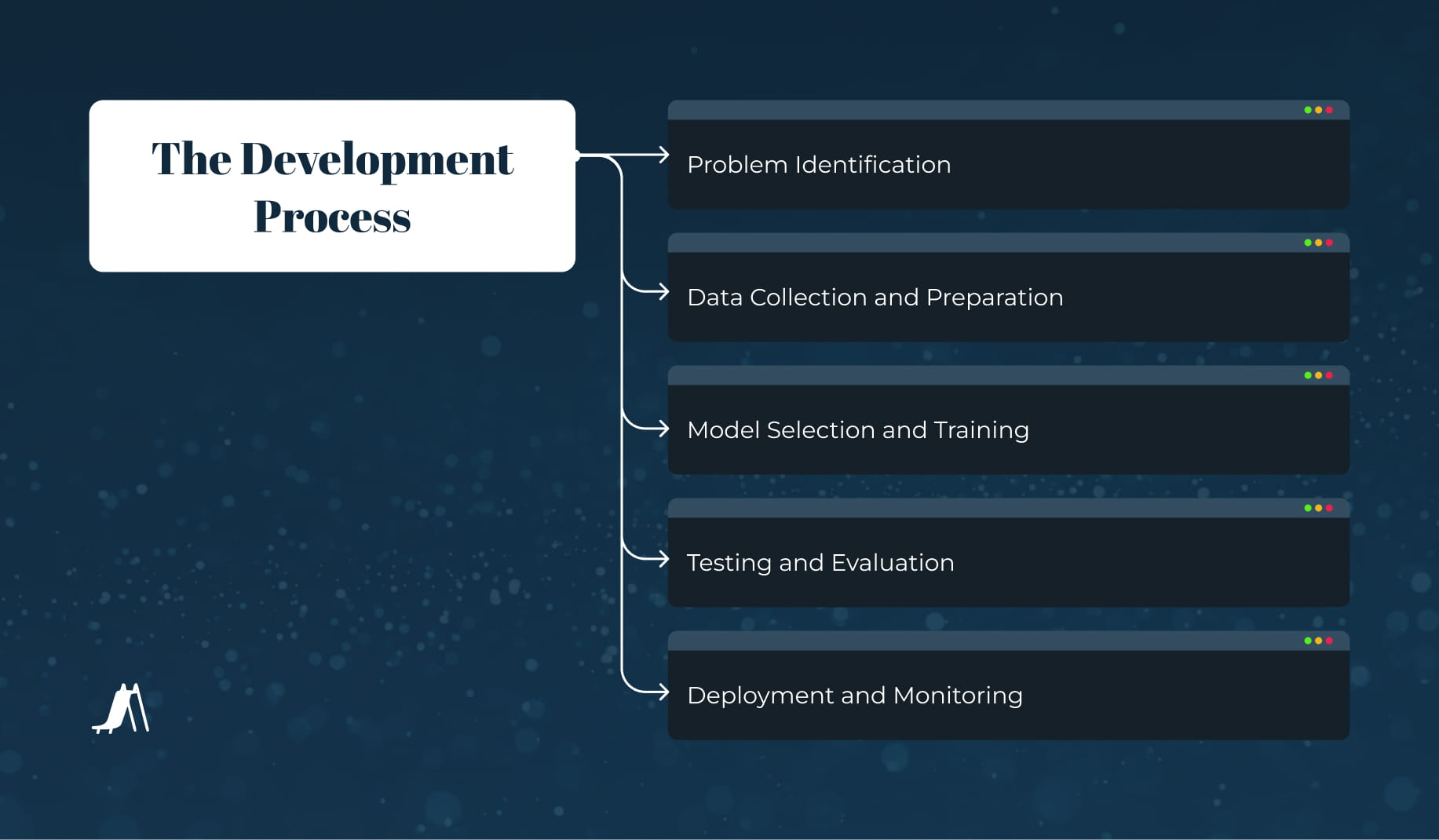The Evolution and Impact of AI Agent Development
AI agent development enhances automation, decision-making, and efficiency across industries, promising innovative applications and ethical challenges.
AI agent development enhances automation, decision-making, and efficiency across industries, promising innovative applications and ethical challenges.

Artificial Intelligence (AI) agents are rapidly emerging as one of the most transformative forces in technology today. By automating complex workflows, personalizing customer interactions, and continuously adapting through learning, these intelligent systems are redefining how industries operate and compete. Far more than simple tools, AI agents function as dynamic problem-solvers, capable of analyzing data, making decisions, and evolving alongside the challenges they address.
This article explores the foundations of AI agent development, highlights their diverse real-world applications, and examines the profound impact they are already having across sectors ranging from healthcare and finance to marketing and education.
AI agents are systems capable of autonomous action in an environment to achieve designated objectives. These agents can include anything from chatbots handling customer service inquiries to sophisticated algorithmic systems managing stock portfolios. The core of AI agent development is to create systems that can operate efficiently and make decisions with minimal human oversight.
AI agents are categorized based on their capabilities and the complexity of tasks they can perform:

Developing an AI agent involves several critical steps, from defining the problem to training and deploying the agent. Here’s a typical workflow:
The first step in AI agent development is identifying and clearly defining the problem that the agent is supposed to solve. This involves understanding the needs of the end-user and the environment in which the agent will operate.
AI agents rely heavily on data to learn and make decisions. Collecting high-quality, relevant data is crucial. This data must then be cleaned and formatted to ensure that the AI systems can process it efficiently.
Depending on the problem, developers choose a suitable AI model or algorithm. This model is then trained using the prepared data, which involves adjusting the model parameters until it performs satisfactorily.
Before deployment, AI agents must be rigorously tested in controlled environments and real-world scenarios to ensure they perform as expected without causing unintended consequences.
Once tested, the AI agent is deployed. Continuous monitoring is crucial as it allows developers to identify and fix any issues that may arise during operation.
AI agents are versatile and can be applied in numerous fields:
In healthcare, AI agents are used to monitor patient conditions in real time, predict outcomes based individual health data, and even assist in surgical procedures by providing real-time data to surgeons.
AI agents in finance manage investments, detect fraud by analyzing transaction patterns, and provide personalized financial advice to customers.
Perhaps the most visible application of AI agents is in customer service. Chatbots and virtual assistants handle inquiries, provide support, and improve customer experience without human intervention.
AI agents personalize shopping experiences by recommending products based on browsing history and preferences, managing inventory, and optimizing logistics.
While AI agents offer significant benefits, their development and deployment come with challenges and ethical considerations:
AI agents process vast amounts of personal data, raising concerns about privacy and security. Ensuring that data is handled securely and in compliance with privacy laws is paramount.
AI systems can inadvertently perpetuate biases present in their training data. Developers must strive to create unbiased systems and continually test for and correct biases.
The automation capabilities of AI agents may lead to displacement of jobs in some sectors, raising economic and ethical concerns about the future of employment.
The future of AI agent development is promising, with ongoing advancements likely to enhance their capabilities further. Anticipated trends include:
As natural language processing (NLP) improves, AI agents will become better at understanding and generating human-like responses, making them more effective in roles that require interaction.
Future AI agents will likely operate seamlessly across multiple platforms, providing a more integrated and consistent user experience.
There is a growing focus on developing ethical AI systems that are fair, transparent, and accountable, ensuring that they benefit society as a whole.
AI agent development is transforming industries by providing powerful solutions that automate tasks, enhance decision-making, and improve operational efficiencies. As this technology continues to evolve, it promises to unlock even more innovative applications, significantly impacting how businesses and societies operate. The focus must remain on responsible development and deployment to ensure that the benefits of AI agents are realized across all sectors of society.
At SLIDEFACTORY, we’re dedicated to turning ideas into impactful realities. With our team’s expertise, we can guide you through every step of the process, ensuring your project exceeds expectations. Reach out to us today and let’s explore how we can bring your vision to life!

.jpg)

Looking for a development partner to help you make something incredible?